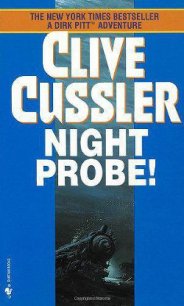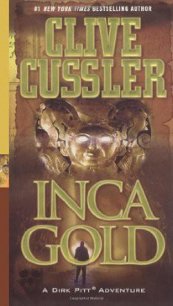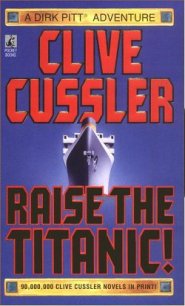The Tombs - Cussler Clive (читать книги бесплатно полностью txt) 📗
As dawn approached, Remi sent the photos to Selma and Albrecht. It began to rain. “I’m glad we didn’t have to contend with that,” she said. The rain grew slowly to a steady, strong downpour, and Sam drove them through every puddle, washing the mud and dirt from the rental car. When they reached a spot where they could park unseen close to the Mincio, they stopped and dumped the inscribed tablet into the river. “I’m going to take a picture of the spot,” said Remi. “Once it isn’t a threat to our lives, we’ll come back one day for the tablet and donate it to a museum.” When she had her pictures, they drove on.
They arrived in Peschiera del Garda before six a.m. and waited in the parking lot near the marina to see the big boat go under the last bridge into the lake. While they waited, Remi called the house in California and Selma answered.
“Hi, Remi,” she said. “We got your pictures. Is the treasure as big as it looks?”
“Bigger. Have you and Albrecht read the message?”
“Albrecht has translated it, but he’s been studying the situation.” Selma paused. “He should be the one to tell you.” After a bit of rustling, Remi heard Albrecht say, “Hello.”
“Hi, Albrecht,” said Remi. “Could you read the stone?”
“Yes. It’s still just Latin. Here’s what it says.
“‘You have my fifth treasure. The fourth is in the place where friends rushed to become enemies. While I buried treasure for the future, King Thorismund buried funeral goods for King Theodoric.’”
“What do you make of that?” asked Sam.
“It’s a reference to the other possibility I referred to for the fifth treasure, the Battle of the Catalaunian Plains in 451,” Albrecht said. “The friends were Flavius Aetius, the Roman general, and Theodoric, the King of the Visigoths. Both had been friends of Attila but hated each other. When Attila invaded and looted much of France, they joined forces at Chalons-en-Champagne and became his enemies.”
“What’s that about funeral goods?”
“Theodoric was killed in the battle, but, as sometimes happens in big battles, the principal leaders lost touch with one another and Theodoric’s body wasn’t found until the next day. His son, Thorismund, buried Theodoric, presumably with his armor, weapons, and personal belongings, and the crown passed to him.”
Remi said, “And this was your second choice for ‘where the world was lost.’”
“That’s right,” Albrecht said. “This was the farthest west Attila got—roughly to the city of Troyes, France. The men who formed an alliance to stop him had once been friends of Attila’s. The battle was huge and violent, but it ended in a draw. When it was too dark to fight, Attila withdrew to his camp. Flavius Aetius didn’t pursue the Huns when they left. Some historians believe he was afraid to destroy them because it would have left the Visigoths unopposed. I suspect the truth was that the Huns were still strong as ever and he didn’t want to push his luck. This was the last major battle that the Romans could be said to have won and that was only because Aetius was still on the field when the other armies departed. Theodoric was dead, and his son Thorismund set off for home as fast as he could to secure his place as the new king of the Visigoths.”
“Good enough,” said Remi. “So we know roughly where we go next. But we’re still in Italy. Have you gotten in touch with the Italian authorities?”
“Yes. They understand the need for secrecy and the need for speed. They’ll be in touch with you in a few hours to take possession of the artifacts and move them to Rome.”
“Good,” said Sam. “I’ll be glad when they’re somebody else’s responsibility.”
Selma said, “When you’ve finished with the Italian authorities, go to the airport in Verona. Your tickets to France will be waiting. Just insert a credit card in the machine for identification and it will print your boarding passes. While you’re in the air, we’ll be preparing more information for you.”
“Thanks, Selma.”
An hour later, they saw the boat pass under the last bridge and move out into the lake outside the marina. They called Tibor and told him the plan and then went to their hotel.
They had barely showered and eaten a room service breakfast before there was a knock on the door. Standing in the hall were five men in dark suits. “Mr. and Mrs. Fargo,” said the leader. He held up a badge and identification card. “I am Sergio Boiardi. We’re assigned to the Tutela Patrimonio Culturale of the Carabinieri in Naples. I understand you have requested our help.”
“Come in, please,” said Sam. When they were inside and the door was closed, Sam said, “We have made a major discovery, a treasure hoard from the year 452.”
“We were told you want us to take custody and register it.”
“Yes,” said Sam.
“You are aware that the bilateral agreement between the U.S. and Italy covers the ninth century B.C. to the fourth century A.D.?”
“Yes. Technically, a fifth-century find is probably exempt from registration, but we’re voluntarily asking for a license to transport the artifacts after they’ve been catalogued and photographed by the Italian authorities. To be open with you, there are other parties who have been actively trying to prevent us from making any discoveries and they’re violent. Part of our intention is to ensure that they don’t attempt to steal the find from us.”
Boiardi nodded. “And where are the artifacts now?”
“On a boat we rented. It’s anchored outside the marina in the lake,” Sam said. “Our idea was to rent a trailer, load the boat onto it, and tow it to a secure spot where we could unload the artifacts into boxes and put them on your truck.”
Boiardi said, “It’s a good plan. We can borrow a barn in the countryside that will hold a truck and a boat on a trailer for a few hours, then all of us can be on our way without attracting unnecessary attention.”
“Let’s do it,” said Sam.
They drove down to the marina in an unmarked white truck the Carabinieri had brought with them, then went to a nearby boatyard and rented a large trailer and a hitch for it. After they had backed the trailer down the boat launch and into the lake, Tibor’s cousins piloted the boat onto the trailer, and the truck pulled it up into the parking lot. Within a few minutes, the boat was secured, the men were all in the truck, and one of Boiardi’s men drove them to a large barn on a farm on the west side of Lago del Garda. The driver pulled the truck and trailer inside, jumped down to close the doors, and then everyone went to work.
Boiardi supervised his men as they placed the boxes of precious coins, ornaments, and gems from the boat into identical cardboard boxes that looked as though they came from a moving van. As the objects came to light and were put on the floor for repacking, both Remi and the Carabinieri took photographs. The rows of boxes grew higher in the back of the truck.
“It’s astounding,” said Boiardi. “Every object is an archaeological marvel, a bit of Attila’s plunder. But plenty of the objects are much, much older than Attila. What he was taking were often masterworks, the museum pieces of their time, some of them from the beginning of the Roman era, some Greek, some from early Christian churches. We’re all very fortunate that the diggers—the grave robbers who are always scouring Italy for antiquities—didn’t find this before you did.”
“We never expected it to be as good as this,” Remi said. “But I guess we should have. The Huns had moved south through Italy, stopping at each city to plunder its wealth. We think he left so much here because this treasure was going to fund his next attempt to invade Rome.”
Sam, Remi, and Tibor and his three cousins helped the Carabinieri repack and load the precious objects. The work went efficiently. When they were finished, Boiardi said, “We’ll tow the boat back to the marina and then we’ll be on our way. We’re driving to Rome so the treasure can be stored in the safety of the Capitoline Museum.”




